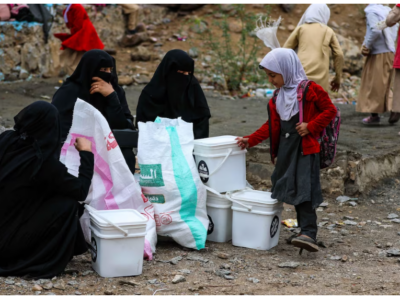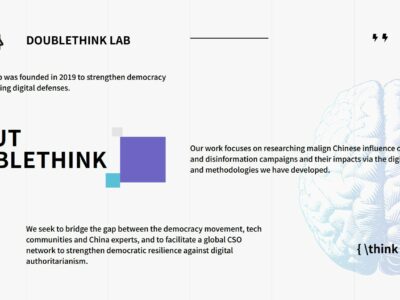We live in interesting times. It's a kind of curse, isn't it? I guess the Chinese were right when they said that such times are the most perilous to live in. But what's interesting about the time that we live in, is that there's nothing all that special about it.
I remember encountering political jargon for the first time when I was a child. My parents were constantly discussing politics, and it was their passion and work. The Middle East was a constant topic and although I didn't understand much about it, it was interesting to watch the news and listen to the discussions. I was really naive, confused and immersed in misconceptions about the structure of the world, and that eventually came crashing down at the first and slightest tremor.
It took years to fully realize what was happening around me. Our visits to Syria were not so frequent in my childhood and it took some time for me to figure out why. There were always some things left unsaid, that the adults chose to keep hidden, and when I realized what they were, I began to hide them myself. It seemed that the Middle East that I loved so much, did not want to reveal its secrets to me, a child who passionately read analyses, commentary and literature dedicated to the history of the Arab world. I was almost ready to turn my back to this part of the world, which was so incomprehensible to me, to abandon that interest and simply move on, as often happens with people growing up in a mixed family.
Ultimately, this forced choice to forget didn't quite materialize, mainly because of my stubbornness. The main topics of conversation around me as a child were the ones about the occupation of Palestine and the civil war in Lebanon. At that time apathy hadn't yet taken over people so much and politics were discussed virtually at every gathering. Palestine was also present everywhere – in meetings, in gatherings and literature… On a visit to Syria the topic of the Lebanese civil war came up, and I heard a friend of ours, a man in the military, say these important words: “We had no business being in Lebanon.” That's when I realized that aside from Palestine, there were other heavy issues weighing on the shoulders of Arab society, even though I didn't quite realize the meaning of these words back then. It became clear to me that some topics weren't to be discussed so openly, especially ones involving violence and pain caused by our own.
The civil war was a memory that lingered in the minds of our friends and Arab society in general. It is a watershed event, without which Lebanon and the entire Middle East could have looked completely different today. For many, the civil war was not a pleasant topic of discussion, because it was a “civil matter” and it involved unwanted imagery of fathers, murdered by their sons, neighbors by their neighbors and brothers murdered by brothers. This was and continues to be a shameful memory that couldn't be wiped away as quickly as the society would like it to be. After the fall of Saddam and the war in Iraq, the debate changed to everything else but that which hurt the most. There was an external enemy, and there still is. This served as an excuse for themselves (and that included me) not to discuss the dirty business that our own government had been doing in the Arab world.
Since these discussions remained encapsulated within the community, for my Bulgarian friends the Arab world remained a kind of unknown, an exotic place that they were curious to visit, but a trip would involve a small, tolerable risk. The problems that sat deep within the vast society between Morocco and Iraq were not that clear to people on the outside. These matters were known only to the people within. And then the uprisings of early 2011 began.
Whether we call these events, the protests in the Arab world from 2011 to the present, an “Arab Spring” as Mark Lynch did, or a “rebellion” as Marwan Bishara described it, isn't that important. The important thing wasn't that the people came out on the streets, but rather the symbolism of the whole thing. That's because these demonstrations and the growing social tensions in the Arab countries had been brewing for years, and it's nothing new. It was the scale, the organization, the sheer will that began to shake the foundations and disperse this dark stain over the world map. And not only the map; it was the Arabs themselves that were shaken to their very core. All of a sudden, the problems that were deliberately pushed back into the darkest corner of the room by the Arabs in Europe, America and Australia, were now becoming not only a topic of conversation, but they were the only topic. This was a genuine social and psychological shock.
The community that had been silent for so long, was now raising its voice at any place that Arab societies existed. Euphoria, passion, fear, doubt – a real cocktail of emotion and elation stirred within the minds of friends and acquaintances. “What happens next?” “Will Mubarak fall? If he falls – that would be a victory for all Arabs!”. “There's no way what happened in Egypt could happen in Libya!” These were just some of the many questions that were asked on a daily basis on the television, radio, in newspapers and friendly conversations, and among acquaintances over a coffee. When Mubarak fell, everyone thought this would be the beginning of the end of tyranny throughout all Arab states. For many, dictatorship was a cancer that the Arab world suffered from, not without the help of European colonial powers. For others, lifelong presidents and kings were a symbol of secularism imposed at the point of a gun, a symbol of change, progress and designer boutiques. For that reason, conversations sometimes ended in quarrels and cursing. But the protests managed to achieve something bigger than that. They made Arab society speak up and have discussions. They made the oppressed people voice their demand for a more bearable life.
And then there came Syria's turn to experience the same wave of social unrest.
Neither the overthrow of Ben Ali in Tunisia or Mubarak's fall in Egypt or the humiliation of the “irreplaceable” Gaddafi in Libya, or the repressions in Bahrain, brought as much pain and sadness and rage, as the civil war in Syria. Nobody believed that there would be such protests in Syria – not even I believed that at the time. I was extremely naive and fully convinced that the regime in Damascus was different than that of Mubarak, Ben Ali, Gaddafi, or the King of Saudi Arabia. The realization that I had been wrong, brought on the collapse of my personal world, and the questioning of principles, ideals and almost everything that I had read.
At the time when I'm writing this, more than 4 million people have left their homes and nearly 11 million are facing a humanitarian catastrophe. In besieged villages like Madaya drinking water is being cut off to punish people for their disobedience. People are in a panic and those that can help them are paralyzed and disheartened. The images that reach us make us shiver and constantly call any relatives that we have there. The pictures keep changing – in only a week, a city where some of our friends live was under the control of several armed – the Free Syrian Army, Assad's soldiers and members of Hezbollah. People just sit in front of their houses, meeting each new army passing through their property.
When I first lost a friend who had taken part in the demonstrations, I stood silent for hours. I didn't know how to react, what to think, what to do. I felt an emptiness, but I was also full of anger. I lost more friends after that. Relatives told us about their friends who had disappeared without a trace. Some wept as they spoke. I was sure such conversations and emotions were present in the entire community. A family friend lost half of his family during an artillery shelling. He looked like a ghost that couldn't even cry, out of anger and frustration. The most horrible thing was happening. Brothers were killing brothers. The worst kind of news struck my family as well – dead cousins, relatives who were in the wrong place at the wrong time…
I mentioned that when I was a child I learned what the adults were not talking about, and I later began to hide it myself. It was the realization and the shame that the Arab governments that they used to worship, and taught their children to worship, did not care a single bit about their people. These governments used everything in their power to quench their thirst for money and influence, even if that meant sacrificing their citizens in bombings, in prisons, torture, repression and humiliation. I didn't realize it back then, but I could sense that in the unspoken part of the conversation, there was something grim, something dark and shameful that caused anger.
In 2012, when I returned from Lebanon, Daniela Yakova from the Bulgarian National Radio invited me to their “12 + 3” broadcast, where I was asked whether what happened in the Arab world and Syria in particular, was a surprise for me. If that question had been been asked several years earlier, I would have said that it was a surprise. But it no longer is. I answered truthfully that the uprising was not a surprise. It's an unspoken part of conversations, in uncomfortable topics, in hidden problems hiding behind the facades of new buildings, successful businessmen and resorts. These riots, protests and demonstrations were waiting to happen as the growing social unrest remained unnoticed.
Today's Arab society is in a war with itself. Civil war is within – it's inside our souls, our bodies, our minds, torn between politics, morality, family, between “right” and “wrong.” This struggle where weapons have no say, and bullets are weaker than words, will be the hardest and the longest one of all. Sometimes it lasts a lifetime. But what had to happen, finally did. Аnd that's the realization of true problems and their discussion out in the open.



